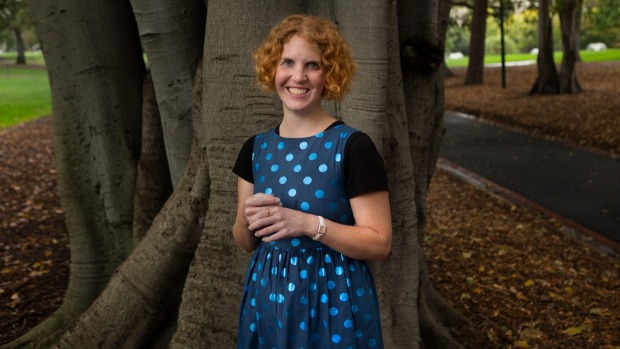
Liz Judson was so busy when it started, she didn’t think to question it.
Five years ago, while working as a junior doctor in a hospital, food started going straight through her. A few hours after eating, she would rush to the toilet – an embarrassing and painful problem for somebody who was expected to be constantly available.
Presuming it was stress, she pushed on and stopped eating much at work. But then she started losing weight, and over 18 months she dropped 25 kilograms – an enormous loss for a woman who stands at 166cm tall.
“Being a typical doctor, I just ignored it. I thought it would be OK… but it just got worse and worse,” she said.
One day, Dr Judson collapsed and was taken to hospital. Doctors presumed she had an eating disorder. She felt pretty sure she did not have a mental illness, but she was so sick that she started second guessing herself.
After her stint in hospital, she ate six large meals a day full of carbohydrates and protein for two years, but she could not regain weight. She was so weak she had to give up work.
Then one day, everything changed. A new doctor who she had not been seeing suspected an iron deficiency was a sign of coeliac disease. He ordered a blood test for antibodies that would suggest whether the disease was present. The test came back positive and within three days a biopsy of her small bowel revealed a severe case of coeliac disease which is estimated to affect one in 70 Australians.
Jason Tye-Din, gastroenterologist and chair of the medical advisory committee of Coeliac Australia, said Dr Judson’s delayed diagnosis was common, and that thousands of people were likely to have the disease without knowing it.
He said studies estimated only 20 per cent of people with the disease had received a diagnosis because they either do not experience symptoms (about one in five people don’t feel symptoms) or their doctors do not recognise the signs and order tests. It can be diagnosed with a blood test and gastroscopy procedure to look at the small bowel.
People with coeliac disease have an immune system that reacts abnormally to gluten, a dietary protein in wheat, rye, barley and oats. The response reduces the area of the bowel available for nutrient absorption, hence Dr Judson’s inability to gain weight.
Symptoms include gastrointestinal upsets, anaemia and nutrient deficiencies, fatigue and mouth ulcers. If left untreated, it can cause liver disease, type 1 diabetes, cancer, osteoporosis and infertility.
While the disease can affect people at all ages, Dr Tye-Din said the median age for diagnoses was 40 (meaning half are diagnosed under age 40 and half over 40) and that it was more common in women than men. He said doctors believed its onset was caused by a combination of genetic susceptibility and environmental triggers that might include the use of antibiotics and being born by caesarean.
Dr Tye-Din said while a vaccine to treat it is currently being tested, the best way to manage it at the moment is a gluten-free diet. “Evidence suggests the sooner it is treated, the less likely people are to experience complications from it,” he said.
Dr Judson, 30, said as soon as she was diagnosed and excluded gluten from her diet, she felt better within hours. The change was so dramatic, she returned to her normal weight within three months.
“I feel so much better. Not being able to work was huge for me. I love my job so I was keen very to get back,” she said.
Dr Judson is now training to be an anaesthetist at Peter MacCallum Cancer Centre. She hopes her story will help others recognise the signs of coeliac disease.
